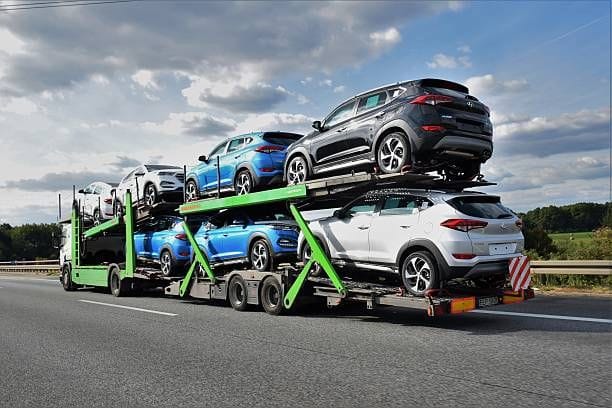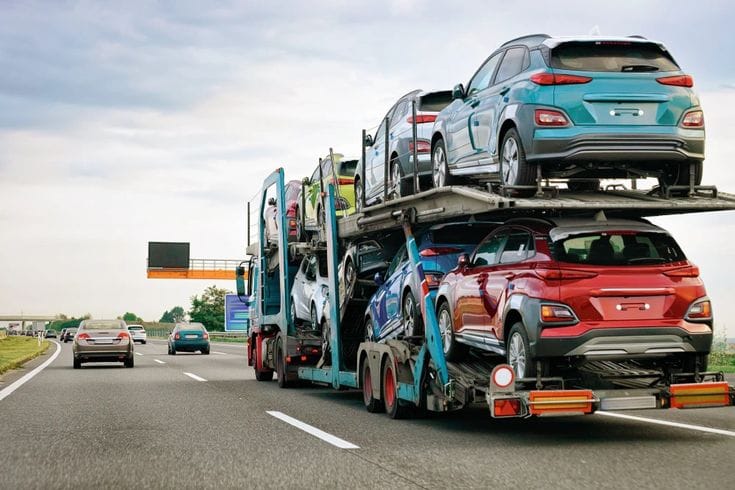Have you ever wondered what exactly a buyback vehicle is and why car manufacturers sometimes decide to buy back cars? A buyback vehicle is a car that the manufacturer repurchases due to certain issues, often covered under warranty or lemon laws. These vehicles might sound like trouble, but they can also offer buyers a unique chance to own a quality car at a discounted price. Learning about buyback vehicles helps you make smarter choices when shopping for a car, so let’s dive into this interesting topic together!
Understanding Manufacturer Buyback Vehicles
Understanding manufacturer buyback vehicles helps buyers make informed decisions. This section explains key concepts about buybacks, repurchases, and related issues.
What Is a Manufacturer Buyback?
A manufacturer buyback is when a car manufacturer repurchases a defective vehicle. This action usually occurs due to serious issues covered under warranty or lemon law. The manufacturer may buy back a vehicle if it doesn’t meet quality standards or has recurring defects. Often, buyback vehicles are repurchased as a gesture of goodwill toward customers.
Reasons for Manufacturer Buybacks
Buybacks happen for various reasons, including recurring mechanical problems or safety issues. The manufacturer doesn’t want to risk customer dissatisfaction or legal liability. Sometimes, vehicles are bought back due to unresolved warranty claims or lemon law eligibility. A manufacturer may buy back a vehicle if the problem responsible for the buyback cannot be corrected timely.
Difference Between Buyback and Recall
A buyback means the manufacturer repurchases the vehicle entirely, while a recall requires repairs only. Recalls usually fix safety defects at no cost. Buybacks occur when repairs fail or the vehicle is fundamentally defective. Therefore, a buyback vehicle differs significantly from a car subject to a recall notice.
Did you know some manufacturers buy back thousands of vehicles each year as a gesture of goodwill?
How to Search Vehicles for Buyback Status

Knowing how to search vehicles for buyback status protects buyers from unexpected issues. This section explores vehicle history reports and online tools.
Using Vehicle History Reports
A vehicle history report reveals if a car has a buyback title or has been repurchased by the manufacturer. These reports also show warranty claims and repairs under the buyback program. Checking the vehicle history is essential before any vehicle purchase. A thorough report helps identify if a vehicle meets buyback criteria.
Read about What is information technology?
Online Tools to Search Vehicles
Several online tools allow you to search vehicles for buyback status using the VIN number. These tools aggregate data from manufacturers and government records. Searching vehicles online makes it easier to verify if a car is eligible for buyback or has been repurchased. It also helps find buyback notices that may affect resale value.
Importance of Vehicle History
Vehicle history gives insight into past issues, warranty repairs, and whether the car manufacturer repurchased the vehicle. Knowing vehicle history helps buyers assess risks and negotiate better prices. Since vehicles are often repurchased by manufacturers, history reports prevent surprises. A good history report ensures confidence in your vehicle purchase.
What to Know About Buyback Vehicles
Buyback vehicles have specific advantages and drawbacks. This section discusses these points and guides on inspecting buyback cars before buying.
Did you know a buyback vehicle often receives thorough inspections and repairs before resale?
Pros and Cons of a Buyback Vehicle
A buyback vehicle may offer a discounted price due to its history. However, it may have lingering issues even after repairs. On the positive side, a repurchased vehicle is often thoroughly inspected and corrected. Still, buyers should weigh the benefits of a discounted price against potential risks.
Checking a Buyback Car Before Purchase
Before purchasing a buyback car, inspect it thoroughly and review its vehicle history report. Ensure that the vehicle is in premium condition and that all issues have been fixed. It is advisable to request documentation proving repairs under the buyback program. Knowing the problem responsible for the buyback helps avoid future troubles.
Impact on Vehicle Value
A buyback can affect the vehicle’s resale value negatively. Many buyers view repurchased vehicles as less desirable. However, a manufacturer buyback vehicle that meets all requirements can still offer true value. Understanding this impact helps you negotiate fair pricing and avoid overpaying.
Manufacturer Buybacks and Car Manufacturers
Car manufacturers play a crucial role in buybacks. This section explains their responsibilities and distinctions between manufacturer and dealer buybacks.
Role of the Car Manufacturer in Buybacks
The car manufacturer is responsible for the buyback when the vehicle fails to meet warranty or lemon law standards. The manufacturer may need repairs before repurchasing a vehicle. Often, the manufacturer offers to purchase your buyback vehicle as a goodwill gesture. They ensure that repurchased vehicles meet all requirements before resale.
New Vehicle Buyback Policies
Manufacturers continuously update buyback policies to address defects more efficiently. New vehicle buyback programs ensure timely resolution of issues. The maker of vehicles people love aims to maintain customer satisfaction through these policies. Knowing more about manufacturer buybacks helps buyers understand their protections.
Read about Mastering Facebook Etiquette
Manufacturer Buybacks vs. Dealer Buybacks
Manufacturer buybacks differ from dealer buybacks, which involve the dealer repurchasing a car. Manufacturer buybacks are more regulated and usually follow lemon laws or warranty issues. Dealers might buy back cars for other reasons, like trade-ins. Thus, a manufacturer buyback vehicle has a distinct history and legal standing.
Buying and Reselling a Buyback Vehicle
Buying and reselling buyback vehicles involves understanding safety, legal, and financial factors. This section guides on these points.
How to Purchase a Buyback Car Safely
To purchase buyback vehicles safely, always request a detailed vehicle history report. Confirm that the repurchased vehicle meets all safety and repair standards. Make sure that the vehicle was repaired under the buyback program properly. It is crucial to avoid vehicles with unresolved issues or unclear buyback titles.
Resell a Buyback Vehicle: What to Consider
When you resell a buyback vehicle, disclose its history clearly. Buyers appreciate transparency about the vehicle’s past issues. Consider that buyback cars may receive lower offers due to their history. Understanding market value for repurchased vehicles helps set realistic prices.
Legal Aspects of Reselling Buyback Cars
Legal requirements often mandate disclosure of buyback status during resale. Failure to disclose may result in penalties. It is your responsibility to inform buyers if the vehicle has a buyback title. Laws vary by region, so learn more about manufacturer and local regulations.
Vehicle History and Buyback Disclosure

Vehicle history reports and disclosure requirements ensure transparency for buyback vehicles. This section explains how these affect buyers and sellers.
Understanding Vehicle History Reports
Vehicle history reports document if a vehicle was repurchased by a manufacturer or has a buyback title. These reports also show warranty repairs and recalls. Knowing vehicle history helps confirm that a repurchased vehicle is safe and meets quality standards.
Did you know vehicle history reports are your best friend to avoid surprises with buyback cars?
Disclosure Requirements for Buyback Vehicles
Manufacturers and sellers must disclose buyback status to potential buyers. This requirement protects consumers from hidden defects. A proper buyback notice accompanies repurchased vehicles when offered for sale. This transparency builds trust between buyers and sellers.
How Buyback Affects Future Vehicle History
A buyback affects future vehicle history by marking the car with a buyback title. This title stays on record and influences resale value. However, a repurchased vehicle can still be a good purchase if repaired properly. Checking vehicle history reports regularly helps buyers avoid issues.
Frequently Asked Questions about Buyback Vehicle
Is it a good idea to buy a manufacturer buyback vehicle?
Buying a manufacturer buyback vehicle can be a good idea if you want a premium car at a discounted price. However, you must be sure that the repurchased vehicle meets all requirements and was thoroughly inspected. A buyback car may have a buyback title, but if repaired under warranty, it can offer true value. Always check vehicle history before purchase.
What is a vehicle buyback?
A vehicle buyback is when the car manufacturer buys back a defective or lemon law-eligible car from the owner. This repurchase usually happens due to a problem responsible for the buyback that cannot be fixed timely. The manufacturer’s buyback protects customers and maintains trust in their vehicles.
How does a buyback program work?
A buyback program allows the manufacturer to repurchase vehicles that don’t meet quality or warranty standards. The manufacturer may offer to purchase your buyback vehicle as a gesture of goodwill. Repurchased vehicles are inspected, repaired if needed, and then often sold as pre-owned vehicles with full disclosure.
Now that you know what a buyback vehicle really means and how manufacturers handle these situations, you’re better prepared to spot great deals and avoid potential pitfalls. Whether you’re considering buying, selling, or simply curious, understanding manufacturer buybacks puts you ahead in the car market. Remember, knowledge is your best tool—always check vehicle history reports and ask questions before making any purchase. Ready to explore more about buybacks and find your next car with confidence? The road to smart car buying starts with a simple step: informed decisions!
Read also about The Meaning of Technology